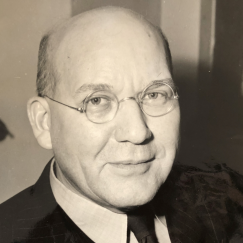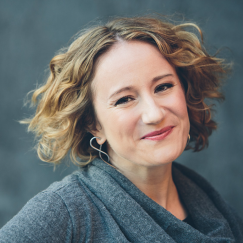Remember that values questions have a “you” in them. The goal is to involve people in relating what they see on the screen to their own lives, not to analyze the filmmaker’s technique or to engage in intellectual criticism. Allow the conversation to flow along a values and feelings track.
Bio/Short Description
Sonia has published 20 books on media audiences, especially children and young people’s risks and opportunities, media literacy and rights in the digital environment, including The Class: Living and Learning in the Digital Age (New York University Press, with Julian Sefton-Green) (view here). Her new book is Parenting for a Digital Future: How hopes and fears about technology shape children's lives (Oxford University Press), with Alicia Blum-Ross (view here). Recipient of many honors, she has advised the UK government, European Commission, European Parliament, UN Committee on the Rights of the Child, OECD, ITU and UNICEF, among others, on children’s internet safety and rights in the digital environment. Sonia served as chair of the LSE’s Truth, Trust and Technology Commission, Special Advisor to the House of Lords’ Select Committee on Communications, Expert Advisor to the Council of Europe, President of the International Communication Association, and Executive Board member of the UK Council for Child Internet Safety.
From her 2018 speech for Global Media and Information Literacy Week:
Last time I wrote about media literacy, I was glad to observe that, as the media increasingly mediate everything in society, there is growing emphasis on the importance of ensuring that people have the media literacy not only to engage with the media but to engage with society through the media. But I was also frustrated at some of the superficial hand-waving from policy makers towards media literacy and media education, seemingly without understanding what is involved or what the challenges are.
Silver bullet solution?
In our ever-more complex media and information environment, media literacy is being hailed as a silver bullet solution – hopefully to be dealt with by one-shot awareness-raising campaigns delivered by brand-promoting CSR departments, or by issuing vaguely-phrased high-handed injunctions to the (apparently unhearing and otherwise preoccupied) Department of Education. The motivation is rarely pedagogic but, rather, more the policy of ‘last resort’.
So, in the face of multiple problems of hate speech, or cyberbullying, or hacked YouTube content, or fake news etc., we are witnessing urgent calls to manage the media environment better – especially, to regulate the internet. But in the face of clashes of positive and negative rights, regulatory difficulties, powerful global companies and short-termist political expediency, this call in turn quickly morphs into a call for the supposedly ‘softer’ solution of educating the internet-using public.
Let me be clear. I am 100% in favor of educating the public. I have devoted years to arguing for more and better media literacy. In this digital age, I believe media literacy’s time has come, and its advocates should grab the opportunity with both hands and advance the cause with all their energy. But energy and enthusiasm are most effectively expended when the challenges to be met are properly recognised. So let me set these out, as I see them, lest our energies are wasted and the window of opportunity is lost.
HOW THEY INFLUENCED YOU?
External Links
Other Grandparents
 BillPosted By: Renee HobbsOn:06/29/2025 - 20:45
BillPosted By: Renee HobbsOn:06/29/2025 - 20:45
 Clyde Posted By: Renee HobbsOn:04/04/2023 - 18:16
Clyde Posted By: Renee HobbsOn:04/04/2023 - 18:16
 danahPosted By: Yonty FriesemOn:01/06/2023 - 07:34
danahPosted By: Yonty FriesemOn:01/06/2023 - 07:34
 SoniaPosted By: Renee HobbsOn:11/21/2020 - 21:12
SoniaPosted By: Renee HobbsOn:11/21/2020 - 21:12
 Jon Posted By: Renee HobbsOn:05/10/2020 - 00:12
Jon Posted By: Renee HobbsOn:05/10/2020 - 00:12


